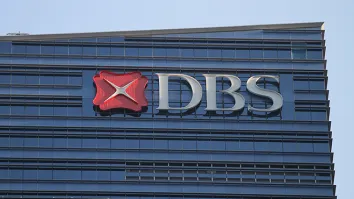
Hong Kong banks to suffer from profit decline post QE3
Banks will struggle to write new mortgages to offset an annual repayment rate of ~15%.
According to Barclays, it is likely that further capital inflows post-QE3 will result in a larger system deposit base. However, combined with weakening demand for credit, it will be a drag on profitability as loan to deposit ratio declines.
Here's more from Barclays:
Corporate loan demand is affected by rising economic headwinds, both domestically and for HK’s major trading partners. Our economics team revised down GDP forecasts for FY13 to 3% (from 4.2%).
Moreover, growth in loans for use in China and cross-border trade finance was previously driven by availability of cheap credit. As the interest rate differential between Hong Kong and China narrows (after China’s interest rate cuts in June/July), cross-border corporate credit demand will fall, in our view.
For residential mortgages, we see limited growth prospects, due to prudential measures introduced by the government and HKMA to cool the property market and mitigate the effects from more capital inflows.
Most recently, the government raised the entry cost for foreign buyers into the Hong Kong housing market.
Moreover, with little funding pressure on existing owners and few alternatives for investment, many homeowners will simply repay their mortgage debt. With the behavioural duration of mortgages at around 6-7 years, we believe banks will struggle to write new mortgages to offset an annual repayment rate of ~15%.
There is some scope for mortgage rates to fall as bank’s HK$ funding costs decline. However, we believe banks will not lower the mortgage rate substantially, in order to 1) protect already low net interest margins; and 2) to support the government’s battle with rising property prices. We currently forecast a mortgage contraction of 5% in FY13E.
















 Advertise
Advertise






